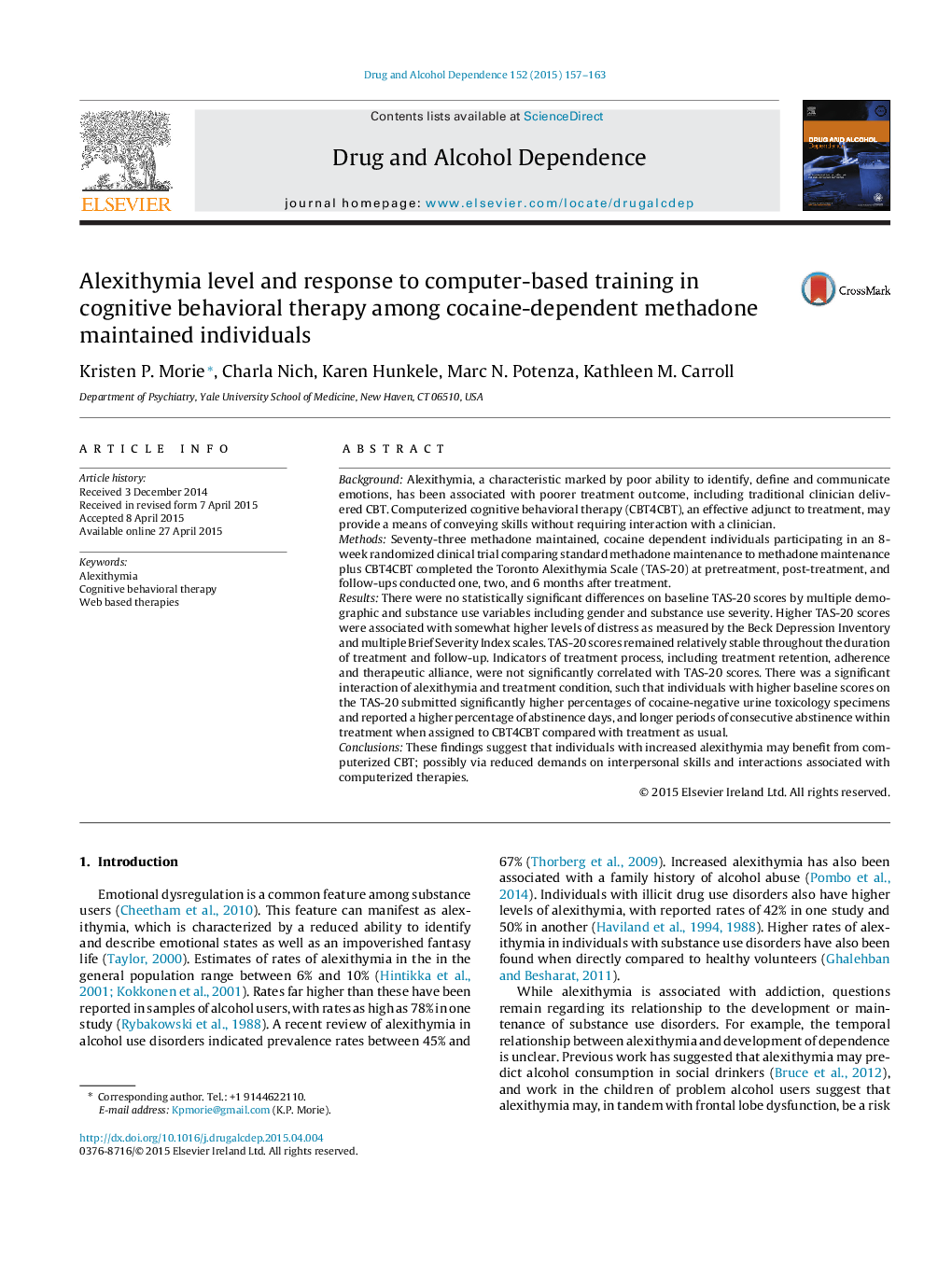| کد مقاله | کد نشریه | سال انتشار | مقاله انگلیسی | نسخه تمام متن |
|---|---|---|---|---|
| 1069782 | 1486139 | 2015 | 7 صفحه PDF | دانلود رایگان |

• Methadone-maintained cocaine abusers have high levels of alexithymia.
• Alexithymia does not change over time in this population.
• Individuals with high alexithymia respond better to computerized CBT therapy for drug dependence than individuals with low alexithymia.
BackgroundAlexithymia, a characteristic marked by poor ability to identify, define and communicate emotions, has been associated with poorer treatment outcome, including traditional clinician delivered CBT. Computerized cognitive behavioral therapy (CBT4CBT), an effective adjunct to treatment, may provide a means of conveying skills without requiring interaction with a clinician.MethodsSeventy-three methadone maintained, cocaine dependent individuals participating in an 8-week randomized clinical trial comparing standard methadone maintenance to methadone maintenance plus CBT4CBT completed the Toronto Alexithymia Scale (TAS-20) at pretreatment, post-treatment, and follow-ups conducted one, two, and 6 months after treatment.ResultsThere were no statistically significant differences on baseline TAS-20 scores by multiple demographic and substance use variables including gender and substance use severity. Higher TAS-20 scores were associated with somewhat higher levels of distress as measured by the Beck Depression Inventory and multiple Brief Severity Index scales. TAS-20 scores remained relatively stable throughout the duration of treatment and follow-up. Indicators of treatment process, including treatment retention, adherence and therapeutic alliance, were not significantly correlated with TAS-20 scores. There was a significant interaction of alexithymia and treatment condition, such that individuals with higher baseline scores on the TAS-20 submitted significantly higher percentages of cocaine-negative urine toxicology specimens and reported a higher percentage of abstinence days, and longer periods of consecutive abstinence within treatment when assigned to CBT4CBT compared with treatment as usual.ConclusionsThese findings suggest that individuals with increased alexithymia may benefit from computerized CBT; possibly via reduced demands on interpersonal skills and interactions associated with computerized therapies.
Journal: Drug and Alcohol Dependence - Volume 152, 1 July 2015, Pages 157–163